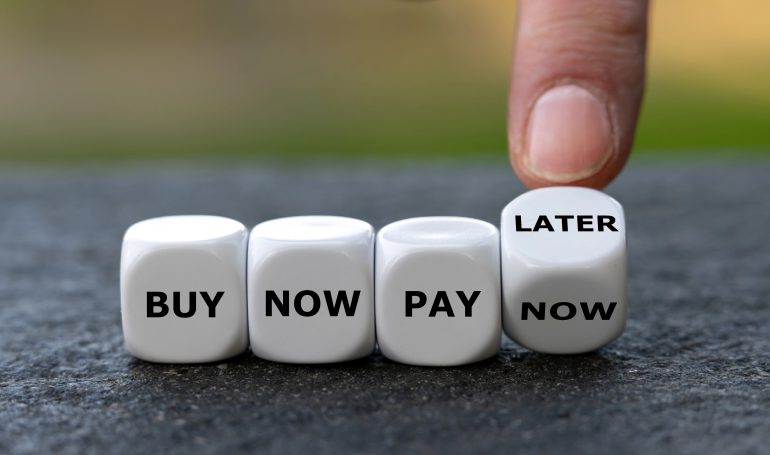It’s a story as old as time. You’re wandering around a shop and something catches your eye. Maybe it’s a glorious new hardback, a beautiful retro football shirt or a pair of shoes which, if only briefly, will make you a brand new person. Whatever it may be, you know that you need to buy it, but there is just one small problem: it’s two weeks till payday and your bank balance is already dangerously close to zero. However, consumer capitalism has created a simple solution to such issues: Buy Now Pay Later (BNPL) schemes.
The use of BNPL services such as Klarna, Riverty and Billink is rising sharply among young people in the Netherlands, with new figures showing one in three 16- to 21-year-olds have used them. The Dutch Authority for Financial Markets (AFM) reported in July that BNPL transactions rose by 17 per cent last year. Across all ages, there were 6.9 million overdue payments in 2024, 1.8 million reminder letters sent and 600,000 cases referred to debt collectors. Among 18- to 25-year-olds, the average number of BNPL purchases rose by almost a third between 2023 and 2024.
However, the money has to be paid eventually, and this is where problems arise. Government research released in May found that 14 per cent of young users have already missed at least one payment, while 10 per cent have incurred reminder fees or charges. The Dutch Association for Debt Assistance (NVVK) says more than 82,000 people sought help in 2024, up from 79,500 the year before, with BNPL debts now appearing in a significant proportion of cases involving under-25s. Debt adviser Dick van Maanen says BNPL arrears are now in nearly every file involving young clients.
Experts warn that young people are particularly vulnerable to overspending through BNPL, citing both ease of use and the influence of social media advertising. Neuroscientists say the part of the brain responsible for impulse control is not fully developed until well into adulthood, reducing young people’s ability to assess risk. Campaigners add that online promotion and peer influence have helped normalise the idea of delaying payment for discretionary purchases such as clothing, electronics and event tickets.
The government has responded with a public awareness drive aimed at schools, colleges and vocational training centres. The ‘Betaal later kater’ (‘Pay later hangover’) campaign, launched by State Secretary for Social Affairs Jurgen Nobel in May, uses classroom activities, posters and online videos to warn of the potential consequences of BNPL. At the launch in The Hague, Nobel told students, ‘Don’t spend money you don’t have,’ while handing out ‘sour-after-sweet’ ice creams to symbolise the short-term appeal and long-term regret of delayed payment.
Regulation is also planned. From 2026, under new European consumer credit rules, BNPL providers will be required to carry out credit checks, verify customer ages and register debts with the Bureau Krediet Registratie, the Dutch credit score register. They will also be brought under AFM supervision. The measures are intended to close current regulatory gaps that have allowed users to build up debt without formal credit checks.
Some campaigners want stronger action, including raising the minimum age for BNPL use from 18 to 25, arguing that younger adults often lack the financial reserves to cope with unexpected bills. Others are calling for tighter limits on the number of BNPL purchases a person can make before further checks are required. Alongside legal changes, charities and consumer education groups are working to improve financial literacy. Projects such as ‘Buy Now, Regret Later’ and workshops at schools encourage young people to think critically about online shopping habits, budgeting and the impact of missed payments on credit records.
While BNPL is marketed as a safe and flexible way to pay, officials and advisers say the rapid growth in its use by young people is contributing to higher levels of debt. Without greater awareness, stronger safeguards and effective oversight, they warn, more young consumers will find themselves unable to pay for purchases they made weeks or months earlier.
Written by James Turrell
